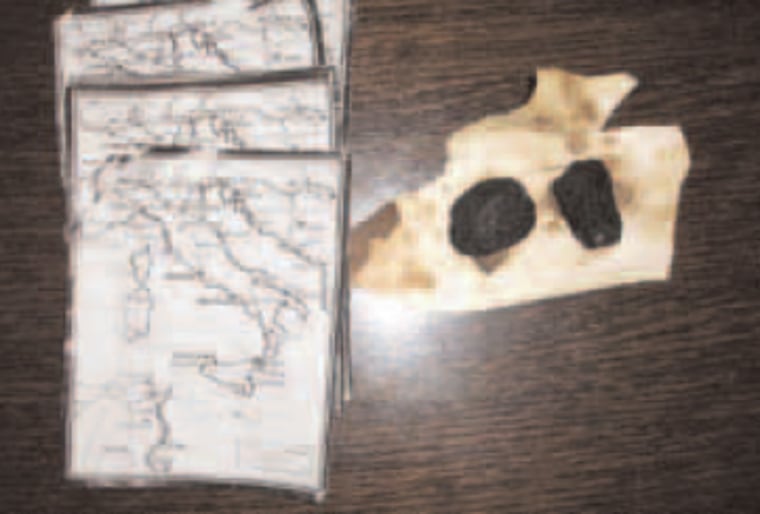The humble prune is set to be recognized as one of the secret weapons of World War II.
A London auction house, Spink, is selling two grizzled prunes that it says were destined to be stuffed with maps or other documents and smuggled to prisoners of war. The prunes were part of the memorabilia collection of a British spy.
"They are very dry and hard and it's amazing that they have survived," Spink spokeswoman Emily Johnston said Tuesday.
The prunes are part of a collection of World War II memorabilia collected by a British woman, the late Doreen Mulot, a former member of Britain's Special Operations Executive, which was set up to carry out operations behind enemy lines.
Sometimes referred to as "the Baker Street Irregulars" after Sherlock Holmes' fictional group of spies, the executive was set up by Winston Churchill and Hugh Dalton to conduct warfare by means other than direct military engagement.
Mulot was one of as many as a million operatives. Her collection is being sold as one lot by her great-nephew Richard Marshall from the town of Crook in northern England and is expected to raise more than 1,000 pounds (US$1,800; euro1,500).
Bathtub production
Interviewed by telephone by The Associated Press, Marshall said his great-aunt had lived in a large house in the north London neighborhood of Hampstead "with a large bathroom where they prepared the prunes."
The dried fruit were softened in water, then de-pitted to allow carefully rolled documents covered in waxed paper to be inserted. The fruit was then re-dried and packed into food parcels for the prisoners, who used the information to escape and find their way home.
"She told me how she and a colleague would sit over the bathtub filled with dried prunes," he said.
Water was added, and "as the prunes swelled up they picked out the (pits) and filled the cavities with waxed paper. The prunes were then dried out and sent to prisoners in Red Cross parcels. It was quite ingenious, but not the sort of thing you usually associate with fighting a war."
His great-aunt, he said, had "kept the two prunes as a souvenir." These particular prunes were never used in an operation, the auction house said.
Stuffed with railway maps
Marshall said the maps contained details of railway lines in Europe.
Mulot, who was British, married a Frenchman before the war and moved with him to France. She returned home in 1940 when she discovered he was having an affair.
In London, she continued to work with Free French fighters against the German occupation of France and joined the SOE.
Her collection also includes accurate forgeries of official German rubber document stamps and elaborate plates used to counterfeit "camp money," which was used by prisoners of war to buy a limited range of goods inside the camps.
There are also instructions on sabotage that were hidden in booklets that were made to resemble diaries, cookbooks, health manuals and pocket dictionaries.
The auction will be held April 27.
